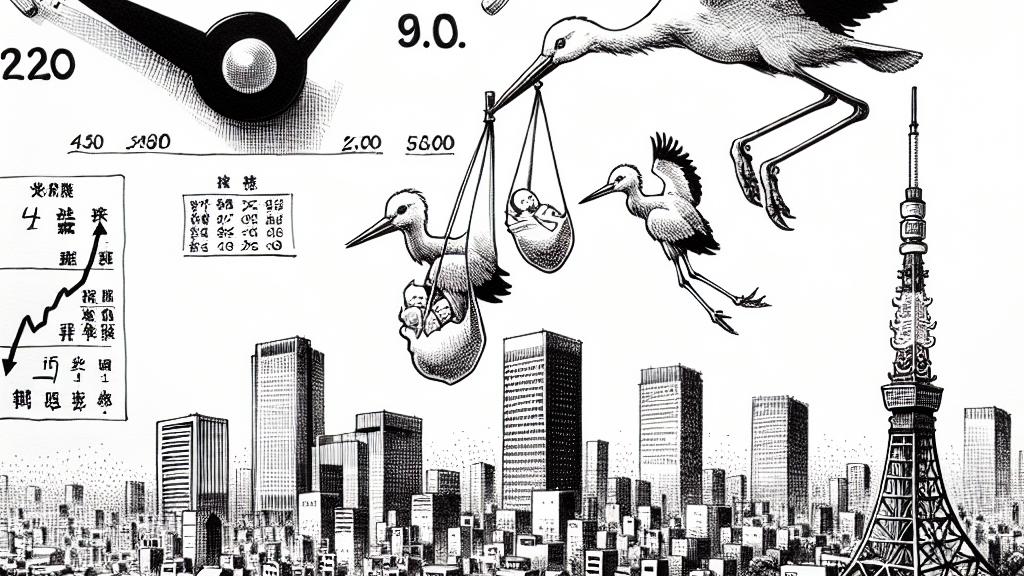Japan's Birth Rate Dives: Are Babies Becoming an Endangered Species?
Overview
- Japan’s birth rate hits historic lows, projecting annual births to drop below 700,000 for the first time.
- Economic challenges, influenced by the COVID-19 pandemic, deter family growth and exacerbate low birth rates.
- Government initiatives are ramping up to address these issues, but their effectiveness remains under scrutiny.

Historic Decline in Birth Rates
Japan is facing a demographic crisis, as the birth rate plummets to a mere 350,000 in the first half of 2024, reflecting a shocking 5.7% decrease compared to the previous year. Projections indicate that for the first time in history, annual births in Japan may fall below 700,000. This decline comes amid increasing death rates, primarily due to an aging population that has already been on the rise for two decades. Urban areas, especially Tokyo, are witnessing severe natural depletion, with roughly 29,000 more deaths than births. The total fertility rate stands at an alarming low of 1.20, significantly under the replacement level of 2.07, with some cities reporting rates as low as 0.99, raising critical concerns about the sustainability of the future population.
Marriage Rates and Economic Barriers
While marriage rates showed a small increase in 2024, they still do not match pre-pandemic figures, reflecting ongoing economic apprehension. Factors such as high living costs, job insecurity, and inadequate work-life balance are contributing immensely to couples' decisions to postpone or forgo having children. Over the last decade, the birth rate has dropped by a staggering 30%. Countries like France and the United States exhibit better fertility outcomes, attributed to their more flexible working conditions that promote family life. Global statistics highlight a troubling trend in Japan: with 22% of men working over 49 hours a week, a strong correlation emerges showing that nations with longer working hours experience lower birth rates. This work culture must radically transform if Japan hopes to foster an environment conducive to family expansion.
Government Initiatives and the Path Forward
In response to these urgent trends, Prime Minister Fumio Kishida has emphasized 2024 as a crucial year for reversing the declining birth rate, launching a comprehensive strategy designed to address the issue. This initiative includes enhancing childcare benefits, revising parental leave policies, and increasing financial support for families. However, skepticism remains regarding the long-term impact of these measures. Experts argue that while financial incentives can alleviate some burdens, they are insufficient to spark a cultural transformation essential for encouraging larger families. Moreover, a significant adjustment in workplace practices is necessary to create a balanced work-life dynamic that supports child-rearing. As Japan formulates its response to this demographic challenge, a collective effort spanning cultural, economic, and structural changes will be indispensable in fostering a more favorable environment for family growth.

Loading...